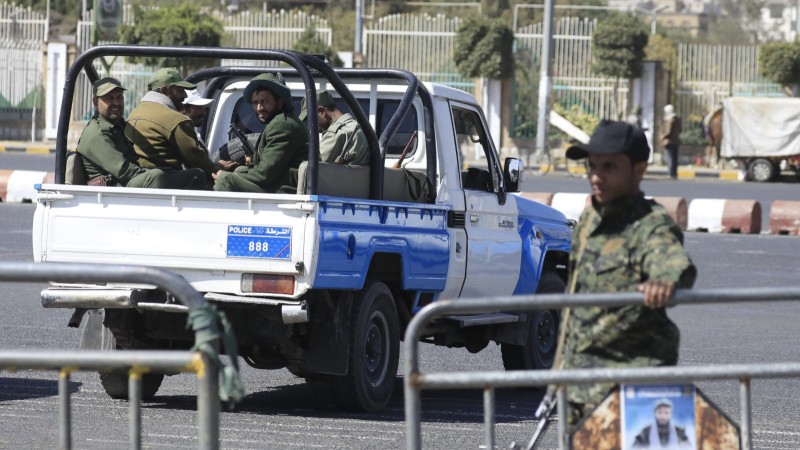Yemen 's Government Accuse Houthi Rebels of Evading their Obligations


Photo; Houthi elements burn the flag of America and Israel in Sana'a
Yemen’s Economic Committee has accused Houthi militias of attempting to create a new oil crisis and evading their obligations in paying salaries while seeking to derail the UN envoy's efforts to implement the Stockholm Agreement.
In a statement seen by Asharq Al-Awsat, the committee said the insurgents have prevented importers of oil derivatives from applying for permits that allow shipments to enter Houthi-controlled Hodeidah port, despite the government's initiative to resolve the crisis.
The government and the Economic Committee, with the support of the Coalition to Support Legitimacy in Yemen and in agreement with the UN, granted the necessary permits for oil tankers. In return, customs duties and taxes on these shipments were to be deposited in a special account at Yemen’s Central Bank branch in Hodeidah in order to pay the salaries of employees in areas under Houthi control.
The Committee warned traders against yielding to militia orders and refraining from applying the government's order to collect tax and revenues on oil shipments.
Two days ago, the legitimate government gave the green light for entry permits to eight ships, while the Houthis banned the rest from applying.
In its statement, the Committee stressed that any merchant applying for a permit to enter the merchandise through Hodeidah port must pay legal fees to the Central Bank in Hodeidah, which will be allocated for the payment of salaries for civilians under UN supervision.
Earlier, Yemen’s Permanent Representative to the UN Abdullah al-Saadi sent a letter to the UN Under-Secretary-General for Humanitarian Affairs and Emergency Relief Coordinator, Mark Lowcock, stressing that the legitimate government adheres to Resolution 49 of 2019 on the need to supply customs duties and taxes on shipments of oil derivatives before importing any shipment, including those heading towards Hodeidah port.
In the letter, a copy of which was obtained by Asharq Al-Awsat, the government tried to defend its decision as a sovereign matter and renewed its accusation against the Houthis of causing the fuel crisis and worsening the suffering of citizens in areas under its control.
The government indicated that the militias are obstructing the government's efforts to pay salaries, and said that Resolution 49 is a traditional sovereign revenue law applied in all countries.
In the letter, the government noted that it has been able to implement its decision in all Yemeni ports and areas during the past three months without any harm to citizens.
It also announced its willingness to provide fuel in militia-controlled areas at lower prices provided that the UN be part of the supervision and control process.

Sana'a — The United Nations World Food Programme (WFP) announced that Houthi authorities continue to detain nearly 40 of its staff working in…

Aden — The French Ambassador to Yemen, Catherine Corm Kammoun, announced today that she held talks with Presidential Leadership Council membe…

Sana'a — Well-informed Yemeni sources have disclosed extensive moves led by the newly appointed Chief of Staff of the Houthi forces, Yusuf al…